What are Porcelain Veneers?
Porcelain veneers, also known as dental veneers, are thin sheets of advanced ceramic that are used as a façade on your natural teeth. They typically replace the front of your tooth, but may also go over the cutting surface of the tooth and part of the back of the tooth, depending on the condition of your tooth and your cosmetic and functional goals.
What can Porcelain Veneers do?
Porcelain veneers can be used to correct virtually any cosmetic complaint you may have about your smile. With just one porcelain veneer, we can correct the appearance of one tooth, while a set of porcelain veneers can be used to improve the appearance of your entire smile.
We commonly use porcelain veneers to correct:
- Gaps between teeth
- Chipped or cracked teeth
- Worn teeth
- Small or poorly shaped teeth
- Discoloured teeth
- Crooked teeth
We can also use porcelain veneers to change the shape or character of your smile if you’ve just never been happy with the size or shape of your teeth.
Am I a Good Candidate for Porcelain Veneers?
Porcelain veneers might be right for you if you have any of the cosmetic complaints listed above. They’re best for people who have generally good oral health, no decay in the teeth to be treated (if you have decay, we can use dental crowns instead), and no bruxism. Bruxism is a condition in which you clench and/or grind your teeth. It can damage your natural teeth and your porcelain veneers.
Any surgical or invasive procedure carries risks. Before proceeding, you should seek a second opinion from an appropriately qualified health practitioner.
Are Porcelain Veneers fragile?
No. The word “porcelain” refers to the colour of the ceramic used. Although it is white like other ceramics you’re used to, it’s actually in the class of ceramics used for advanced applications, such as bulletproof vests and tank armour. Although they are thin, porcelain veneers are strong, and when they are bonded to your teeth, they are even stronger.
In clinical studies, about 90-95% of porcelain veneers last ten years or more, and 80-85% last up to 20 years.
Why are Dental Veneers called “Porcelain” Veneers?
Dental veneers were invented almost 100 years ago, for use in Hollywood movies. Those first dental veneers were actually made of porcelain, but they were so fragile that they had to be taken off between takes so stars wouldn’t break them. So, it’s partly traditional to call them porcelain, like some people refer to tinfoil.
But, as we noted above, dental veneers still have the colour and luster of porcelain. And “porcelain” has a certain cultural value. It is precious and beautiful. Although the dental veneers are made of much more exciting and valuable materials today, these materials don’t have the same emotional resonance. “Lithium disilicate veneers” just doesn’t have the same ring to it. So dental veneers often go by their old name. But increasingly, they’re being called dental veneers or simply veneers.
Does it Hurt to get Porcelain Veneers?
Everyone’s pain sensitivity is different, but most people don’t report much discomfort during or after the porcelain veneers procedure. During the procedure, we will remove a small amount of material from your natural teeth. Anaesthesia is used during this procedure, so you won’t feel anything. Afterward, if you feel discomfort, it tends to be minor and can be controlled using over-the-counter pain relievers.
How long does it take?
Porcelain veneers can be placed fairly quickly. It only takes two visits and typically less than a month before your porcelain veneer procedure is complete.
Why should I choose My Hills Dentist for my Veneers?
At My Hills Dentist, we have four highly skilled and very experienced cosmetic dentists. Most of all, though, our results speak for themselves.
Before
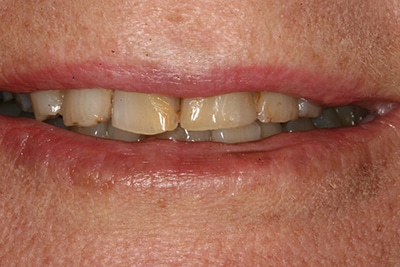
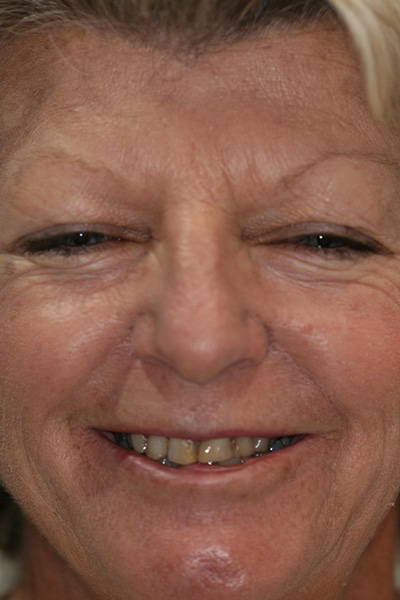
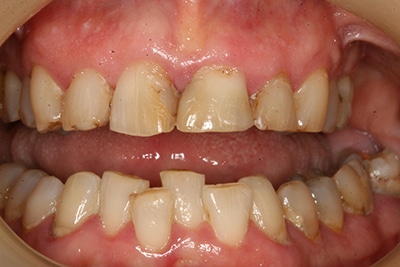
After
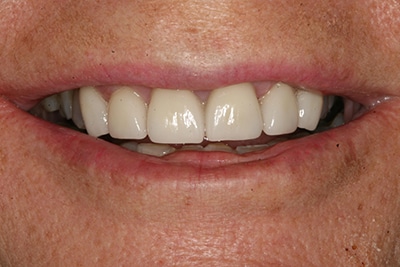
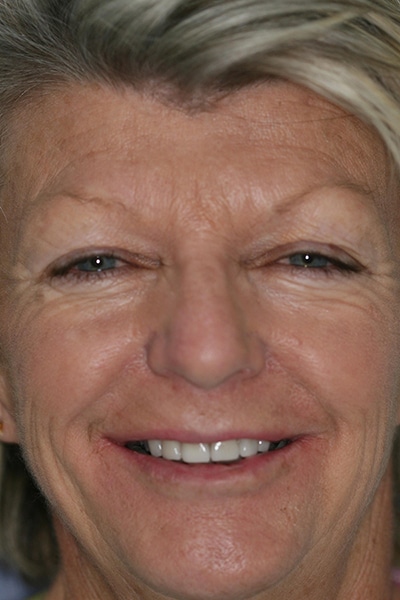
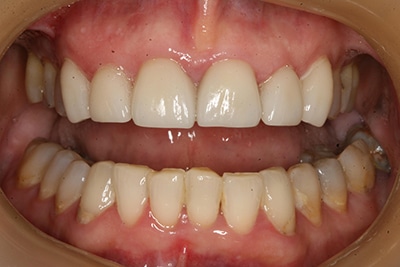
If you would like to learn more about getting porcelain veneers in the Sydney area, please call (02) 9686 7375 for an appointment at My Hills Dentist in Baulkham Hills.


